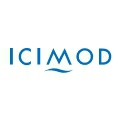


The Hindu Kush Himalaya (HKH) region stretches 3,500 km across Asia, spanning eight countries – Afghanistan, Bangladesh, Bhutan, China, India, Myanmar, Nepal, and Pakistan. Encompassing high-altitude mountain ranges, mid-hills, and plains, the zone is vital for the food, water, and energy security of around two billion people and is a habitat for countless irreplaceable species. It is also acutely fragile and at the frontline of the impacts of the triple planetary crisis of climate change, pollution, and biodiversity loss.
The International Centre for Integrated Mountain Development (ICIMOD), based in Kathmandu, Nepal, is an international organisation established in 1983, that is working to make this critical region greener, more inclusive and climate resilient. For more information, read our Strategy 2030 and explore our website.
The Hindu Kush Himalaya (HKH) region stretches 3,500 km across Asia, spanning eight countries – Afghanistan, Bangladesh, Bhutan, China, India, Myanmar, Nepal, and Pakistan. Encompassing high-altitude mountain ranges, mid-hills, and plains, the zone is vital for the food, water, and energy security of around two billion people and is a habitat for countless irreplaceable species. It is also acutely fragile and at the frontline …
Views: 2026 | This job is expired 5 months, 3 weeks ago
About ICIMOD
The Hindu Kush Himalaya (HKH) region stretches 3,500 km across Asia, spanning eight countries – Afghanistan, Bangladesh, Bhutan, China, India, Myanmar, Nepal, and Pakistan. Encompassing high-altitude mountain ranges, mid-hills, and plains, the zone is vital for the food, water, and energy security of up to two billion people and is a habitat for countless irreplaceable species. It is also acutely fragile – and frontline to the impacts of the triple planetary crisis of climate change, pollution, and biodiversity loss.
The International Centre for Integrated Mountain Development (ICIMOD), based in Kathmandu, Nepal, is an international organisation established in 1983, that is working to make this critical region greener, more inclusive and climate resilient. For more information, read our Strategy 2030 and explore our website.
Position overview
This Action Area Coordinator position offers an exciting opportunity to lead Action Area B (AAB), one of ICIMOD's six Action Areas (AA), specifically focused on Stimulating Action for Clean Air across the Hindu Kush Himalaya (HKH). This important new position is responsible for managing the AAB and delivering AAB-specific results as committed to in ICIMOD’s Medium-Term Action Plan V (MTAP V): Embracing Change and Accelerating Impact (2023–2026). AAB is part of Strategic Group (SG) 1, one of ICIMOD’s three SGs. The position reports directly to the Strategic Group Lead (SGL).
We are seeking a strong manager with excellent organisational and multitasking skills, as well as technical expertise in all aspects of air pollution and air quality management. This role is ideal for someone skilled in planning and coordinating multiple concurrent workstreams, including budgets and personnel management, while maintaining a strong focus on delivering outcomes and impacts.
Action Area B: stimulating action for clean air
The AAB highlights the impacts of air pollution on health, economy, climate, and the environment. Air pollution is high across the HKH, and trans boundary in nature. Air quality often falls short of international and regional targets. ICIMOD enhances air monitoring and communications on impacts across the region. We co-develop tools to assess mitigation strategies, scale solutions, and support Regional Member Countries (RMCs) in building air quality monitoring, assessment, and communication capabilities.
This AA collaborated with the World Bank and 24 government institutions in Bangladesh, India, Nepal, and Pakistan, hosting science-policy dialogues in Kathmandu (2022) and Thimphu (2024) to develop a roadmap for transboundary air pollution mitigation. Stronger links between air pollution and climate are needed, as black carbon affects health and accelerates glacier and snow melt. Methane, a key greenhouse gas, is a significant area for potential work for this AA. We aim to lead evidence-based policy and practice changes for clean air in the HKH region.
This AA focuses on two key interventions:
Responsibilities
The Action Area Coordinator will be responsible for delivering results in line with the commitments we have made in our Strategy 2030: Moving Mountains and our Medium-Term Action Plan V (2023–2026): Embracing Change and Accelerating Impact.
You will ensure that the work of the AA results in meeting AA-specific outcomes and targets, working closely with the SGL to make this happen. You will hold oversight for all the AA work and manage a multidisciplinary team of around 15 professional staff (associates, analysts, specialists, etc.). You will operate under the direct supervision of the SGL, but you will also be required to work closely with other Strategic Groups and Action Areas, especially on Regional Collaboration and Global Advocacy, as well as Livelihoods.
More specifically, you will have the following responsibilities:
1.Thought leadership, coordination, and prioritisation
Ensure the AAB team is building on latest thinking and best practice in air quality management and air pollution, monitoring, etc. This involves steering the team to keep up to date on latest evidence, developments, scientific thinking etc.
Motivate, inspire, and guide the team to deliver high-quality results, and make positive contributions to ICIMOD's High-Level Outcomes and Long-Term Impact Areas, Strategy 2030, and MTAP V commitments.
Ensure that:
Liaise closely with the SGL in planning and integrating support services (i.e., Monitoring and Reporting, Communications, Finance, Administration, Partnerships, and Gender).
Provide strategic, advisory, and technical contributions, including methods, frameworks, and new insights, while staying updated on the emerging trends, the operating context, and new partners, etc.
Ensure teams are delivering results with and through national, regional, and international partners, and maximise opportunities for GESI, youth, and digital technology.
2. Planning, delivery, and reporting
3. People management
4. Communication, engagement, and outreach
5. Business development and resource mobilisation
Minimum qualifications and experience
ESSENTIAL
Reporting and supervising
The Action Area Coordinator will report to the SGL of 'Reducing Climate and Environmental Risks' strategic group and will be responsible for supervising all reporting staff. The coordinator will collaborate and work with other Strategic Groups and Units where relevant.
Location
You will be working in a cross-cultural, impact-oriented environment at ICIMOD’s head office in Kathmandu, Nepal. Occasional travel in the HKH region will be required. Kathmandu is a lively and exciting place to live. People are friendly, living costs are comparatively inexpensive, food is delicious (with a range of local and international cuisines), and there are good local and international schools and a low crime rate. Nepal offers amazing trekking trails, white water rafting, and safaris, combined with a rich culture and charming yet lively nightlife.
Duration
The initial appointment will be for three years with a probation period of six months. Contract after December 2026 will be dependent on ICIMOD future funding levels and there is a possibility of extension subject to performance and continued funding.
Remuneration
This is an international position at ICIMOD. The starting annual gross salary for this position is USD 66,510/- (negotiable based on experience and qualifications). Gross salary comprises of basic salary, provident fund, and family/post adjustment allowance. Salaries and benefits at ICIMOD are competitive compared with other international organisations. We offer a comprehensive benefits package which includes child/dependency allowances, insurances (medical, life and accidental), children’s education grant for maximum 2 children below 18 years of age, severance pay, paid leave (30 holidays and 10 public holidays per year) and day care facility.
For expatriates, there is a tax exemption in Nepal; they are responsible for their home country’s tax payments. Expatriate staff are entitled to housing allowance, annual home leave ticket, shipment of personal effects, and an installation and repatriation allowance.
ICIMOD’s core values
Our core values are integrity, neutrality, relevance, inclusiveness, openness, and ambition. These values are an expression of our culture and are central to the guiding beliefs and principles of our work and behaviour. Our core values will lie at the heart of ICIMOD operations and delivery. They will underpin everything we do and frame how we work with our partners. They reflect our founding intentions and the balances we seek to hold, while equipping ourselves for the future.
Diversity, equity, inclusion, and safeguarding
ICIMOD’s human resource selection process is based on the qualifications and competence of the applicants. As an employer, ICIMOD is committed to promoting diversity, equity, and inclusion, and offers equal opportunities to applicants from all backgrounds and walks of life, including but not limited to gender, age, national origin, religion, race, caste, ethnicity, sexual orientation, disability, or social status. ICIMOD strongly encourages applications from all eligible applicants, especially women, from all parts of the HKH region. ICIMOD is dedicated to establishing and upholding a safe and nurturing work environment, where all its employees can participate fully and meaningfully without fear of violence, harassment, exploitation, or intimidation. Any type of abuse or harassment, including sexual misconduct, by our staff, representatives, or stakeholders is not condoned or tolerated.
This job has expired.









